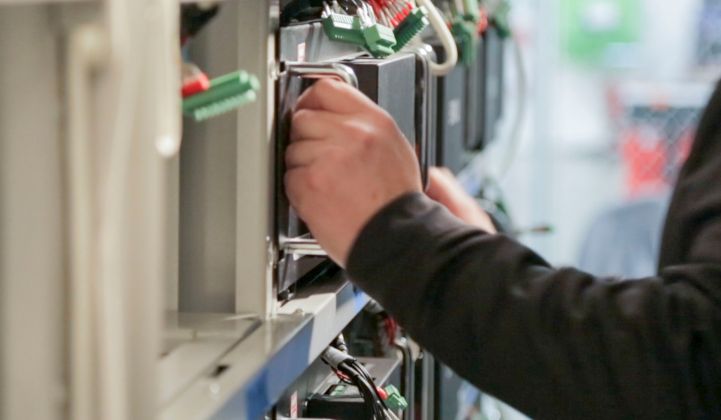Experts are asking whether project portfolio selloffs by Amber Kinetics and Powin Energy represent a new trend.
Last month, Flywheel maker Amber Kinetics said it was giving up on a 20-megawatt project, Energy Nuevo, for Pacific Gas and Electric in California.
“The company’s new five-year strategic plan calls for an acceleration of equipment deployment and a de-emphasis on project development,” said Amber Kinetics in a press release.
Ed Chiao, co-founder and CEO, said the money earmarked for project development would now be spent on commercializing a new product, the 40-kilowatt, 160-kilowatt-hour M160, which is due for testing in the first quarter of 2018.
“Energy Nuevo would have required almost $10 million in security deposits and development costs,” Chiao said in the statement. "When we compared investing a similar amount in bringing the M160 to market on schedule, and focusing on generating greater near-term revenue, we chose to prioritize commercialization over project development.”
Portland, Oregon-based Powin Energy has since revealed it is selling its entire project portfolio, comprising around 100 megawatt-hours of energy storage assets, as a precursor to refinancing and refocusing on product development.
“We will be looking to strengthen our finances once we’ve moved these assets,” said Jan Jacobson, vice president of business development, in an interview. “We’re selling everything.”
The portfolio includes projects that have not yet been publicly announced, Jacobson said. Powin hopes to sell it off within nine to 12 months, he stated.
“Powin is committed to not competing with their customers and will be exiting project development at some point in the future to focus on being a product/services company,” explained a source close to the firm. “They are happy for people to know they are looking to sell project assets to that end.”
Amber Kinetics and Powin Energy are not the only energy storage developers currently selling projects.
RES, which has a global storage portfolio of more than 240 megawatts and 275 megawatt-hours of capacity, has put two U.K. projects on the block this summer. In June, the company sold a 35-megawatt storage plant to Foresight Group.
And in August, RES completed the sale of a 20-megawatt project to the Renewables Infrastructure Group.
That plant, in West Lothian, Scotland, is still being built, suggesting RES is looking to move away from project ownership and take on more of an engineering, procurement and construction role on projects, as it is doing for Enel with another U.K. storage development.
The question is whether this dumping of projects represents a trend.
“It’s pretty interesting,” said Daniel Finn-Foley, senior analyst for energy storage at GTM Research. “Powin may be moving more toward where they have the solution and they want to get away from the real developer work. The role of developer isn’t super appealing right now.”
That said, energy storage product development is hardly easy.
The roll call of companies that have tried and failed to make their mark with new energy storage products is starting to look a bit like the solar industry’s list of failures, with Alevo and Aquion being two of the latest high-profile names to crumble.
Energy storage technology firms working on alternatives to lithium-ion batteries face an uphill battle. Lithium-ion’s volume-driven cost reductions will usually negate any short-term price advantage that a different chemistry could yield.
Integrators, meanwhile, face an equally competitive market. Powin’s strategy, for instance, will likely pit it against AES, which has considerable market muscle after allying with Siemens to create a new company, Fluence, earlier this year.
Back at Amber Kinetics, managing director Bill Barnes told GTM the company isn't giving up completely on project development for now.
“Amber Kinetics maintains a strong internal project development capability, and controls sites with the potential for well over 100 megawatts of storage using our flywheel technology,” he said.
“We are not writing off the possibility of future project development under the right circumstances. We were disappointed not to be moving forward with Energy Nuevo, but more than pleased with our new product development focus and strong equipment sales to date.”



